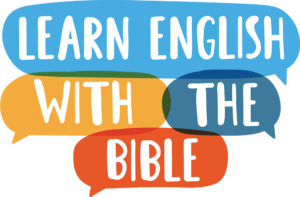Basic English Sentence Structure - Part 2
In the first post of this series on English sentences, we talked about basic English sentence structure. Every sentence must have a verb, and every verb must have a subject. In this post, we’ll talk more about the subject of the sentence.
Remember, the order of words in an English sentence is important, and doesn’t change often.
First – The subject – who or what is doing the action
Second – The verb – the action of the sentence
Third – The object – receives the action of the verb
There is one occasion when a sentence doesn’t need a subject — we’ll discuss this at the end of this post, so keep reading! Right now, we’re going to talk more about the subject of the sentence. A subject can be very simple, or it can be complicated. Let’s look at a lot of examples!
Who? What? -- Two Kinds of Nouns
The subject of the sentence will tell you who or what is doing the action. Words that tell you “who” or “what” are nouns. The noun can be a physical object – a person, a dog, a clock. A subject could also be an idea – liberty, solitude, creativity.
You can name the object, or you can use another word (like a subject pronoun) that is standing in for a noun – they, it, this, here, etc. Here are some examples
A physical object:
- The Israelites were happy and praised God. (Joshua 22:33a)
The subject is Israelites. - They were in a boat with their father, mending their nets. (Matthew 4:21b)
The subject is They – a subject pronoun referring to James and John.
An idea:
3. Your anger lasts a little while, but your kindness lasts for a lifetime. (Psalms 30:5)
The two subjects of this compound sentence are anger and kindness, two ideas. (We’ll discuss compound sentences more in a future post.)
4. Your love is faithful, Lord… (Psalm 36:5)
All of these subjects answer the question, “who or what?”
Three Kinds of Subjects
Subjects can be one noun, like the subjects in samples 1-4 above. They can also be more complicated. Let’s talk about three kinds of subjects:
- Simple Subjects
- Compound subjects
- Noun Phrases
1. Simple Subjects
In the example 1, “The Israelites” is a simple subject. It’s one person or thing, or one word (in addition to the article “the”).
In example 2, “They” is also a simple subject. Simple subjects can also describe a group or multiple subjects, as long as it is just one word, like “The Israelites” in example 1. Here are two more examples of a simple subject that describes a group or multiple subjects:
- Large crowds followed Jesus… (Matthew 4:25a)
- Some people soon brought to him a man lying on a mat… (Matthew 9:2)
2. Compound Subjects
Compound subjects contain two or more separate nouns or subject pronouns. Here is an example:
- Later, Jesus and his disciples were having dinner at Matthew’s house. (Matthew 9:10a)
Jesus was having dinner at Matthew’s house, and so were his disciples. This compound subject answers the question, “Who was having dinner?”
- Many tax collectors and other sinners were also there. (Matthew 9:10b)
Tax collecters were there, and sinners were there, too. It’s possible to make two sentences by saying:
- Many tax collectors were there.
- Other sinners were there.
We can make this easier for the reader to understand by combining these two sentences into one sentence with a compound subject:
- Many tax collectors and other sinners were also there.
Now one subject answers the question, “Who was there?”
3. Noun Phrases
Finding the Subject in a Noun Phrase
A noun phrase is a group of words that function together like a noun. They provide more detail than singular or compound subjects. Here’s an example:
- News about Jesus quickly spread all over Galilee. (Mark 1:28)
To Find the Subject, Look For the Verb
In a sentence like this, how can you tell what the subject is? There are two nouns that come before the verb – “News” and “Jesus.”
To find the subject, first look for the verb. In this sentence, the verb is “spread.”
- News about Jesus quickly spread all over Galilee.
We Have the Verb – Now What?
Now that we have the verb, we can find the subject. The words that come before the verb are “News about Jesus quickly.” “Quickly” is an adverb describing the verb “spread.” We can leave that out for now. That leaves us with “News about Jesus.” But which noun tells us exactly who is doing the action of the verb?
Look at Other Words in the Noun Phrase
This verse shows one way to discover which noun, “news” or “Jesus,” is the subject of the sentence.
The proper noun “Jesus” follows the preposition “about.” “About Jesus” is a prepositional phrase that gives us more details about the kind of news it was. It’s not the subject of the sentence. That leaves us with “news” as the noun that is the subject of the sentence.
- News about Jesus quickly spread all over Galilee.
Notice that you could leave out the prepositional phrase and the adverb, and the sentence would still make sense:
- News spread all over Galilee.
Without the extra information, though, the sentence is not as interesting.
Look at the Context of the Sentence
With this sentence, you can also identify the subject by looking at the context. “News spread all over Galilee” makes much more sense than “Jesus spread all over Galilee.”
Here's Another Example
Let’s find the subject in this sample sentence. What do you think?
And anyone who welcomes you welcomes me. (Matthew 10:40a)
First, We’ll Find the Verb
There are two verbs in this sentence – the verb “welcomes” appears twice. Which verb is the one we are looking for?
And anyone who welcomes you welcomes me.
The first time we see the verb “welcomes,” it is part of an adjective phrase that describes the noun “anyone.” This adjective phrase is “who welcomes you.” The first “welcomes” is not the verb we are looking for.
Now we can look at the sentence without the adjective phrase “who welcomes you”:
And anyone welcomes me.
We’re getting closer! The next thing to do is get rid of the conjunction “and.” “And” connects this sentence to the previous sentence, so it isn’t necessary to the meaning of this sentence alone.
Anyone welcomes me.
Now we have a simple sentence with a subject (anyone), a verb (welcomes), and an object (me). The sentence doesn’t really make much sense without the phrase “who welcomes you,” so you can see that sometimes it is necessary to create a noun phrase for the subject of the sentence.
Time For a Quiz!
Try to find the subjects of these sentences! Then identify what kind of subject it is – simple, compound, or a noun phrase. Answers are below.
- John was in prison when he heard what Christ was doing. (Matthew 11:2a)
- One Sabbath, Jesus and his disciples were walking through some wheat fields. (Matthew 12:1)
- Any kingdom where people fight each other will end up ruined. (Matthew 12:25b)
- Finally, all the dough rises. (Matthew 12:33b)
- When Jesus and Peter got into the boat, the wind died down. (Matthew 14:32)
Answers
- The subject is John (simple subject).
John was in prison when he heard what Christ was doing.
2. The subject is Jesus and disciples (compound subject)
One Sabbath, Jesus and his disciples were walking through some wheat fields.
3. The subject is kingdom (noun phrase -” any kingdom where people fight each other”)
Any kingdom where people fight each other will end up ruined.
4. The subject is dough (noun phrase – “all the dough”)
Finally, all the dough rises.
5. The subject is wind (simple subject)
When Jesus and Peter got into the boat, the wind died down.
How did you do? I hope you learned more about subjects, and how they need to come before the verb in an English sentence. They don’t need to be the first word in the sentence, but they do need to come before the verb!
Wait! One More Thing
Before you go, I promised to show you an example of an English sentence that doesn’t need a subject. Look at this verse:
- Take the yoke I give you. (Matthew 11:29a)
Wait a minute, where is the subject for the verb “take?” There are no words that come before it in the sentence. Who is doing the action of the sentence? Maybe you already know where we are going with this…
English Sentences That Don’t Need a Subject
This is an example of an imperative sentence. When you use the imperative mood, you are usually speaking directly to one person or a group of people. In this case, your subject is not necessary, because your listener(s) knows that you are talking directly to him, or to them. Sometimes the subject in an imperative sentence is called “an understood subject,” because the listeners understand that you are talking to them.
Here are some more examples:
- Put it on your shoulders, and learn from me. (Matthew 11:29b)
- “…Pay attention and try to understand what I mean.” (Matthew 15:10b)
- Sing a new song. Shout! Play beautiful music. (Psalms 33:3)
We’ll talk more about imperative verbs in another lesson. In next week’s post, though, we’ll keep working on English sentence structure by looking at the second part of our SVO structure – the verb! Be sure to leave a comment or question below and let me know what will help you the most! See you next time.



